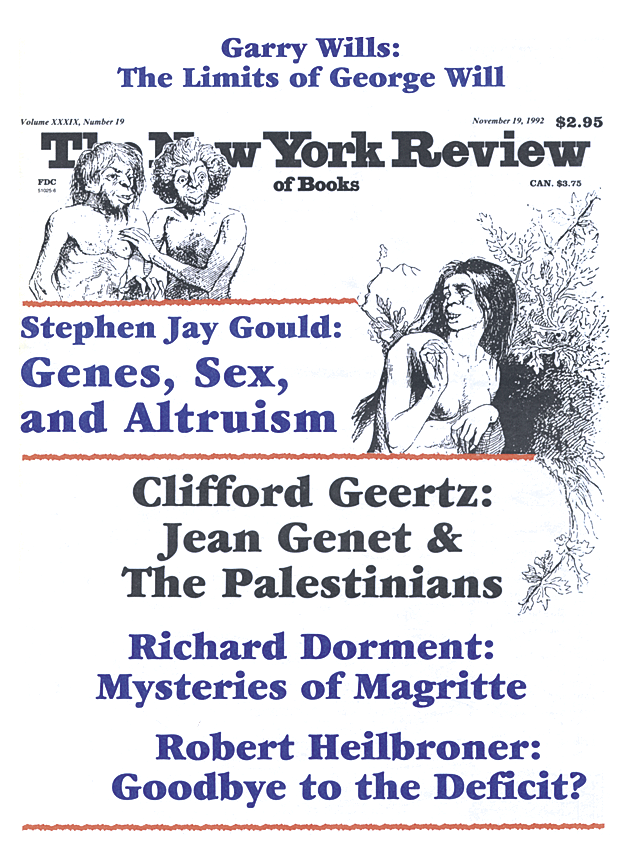In response to:
Bad Boy from the October 8, 1992 issue
To the Editors:
Ian Buruma asks, in his review of Cinema, Censorship, and the State: The Writings of Nagisa Oshima, 1956-78 [NYR, October 8], why the editors at the MIT Press did not “make their own choice of Oshima’s essays, instead of following Editions Gallimard.”
Oshima was quite naturally consulted on the form of this first English-language edition of his work. It was his wish to conserve his own selection, made for the French edition. The Press has respected that wish.
This selection includes in addition to the texts on cinema, substantial sections devoted to his essays on contemporary political and social issues and to his work as correspondent and observer, in Korea and Vietnam, as well. It therefore accurately represents the range and quality of work by an artist and intellectual, preeminent among those of his generation, whose articulation of the political and social issues of his time is central to a picture of postwar Japan. It is, in fact, a major document offered as one possible stimulus to a shift of focus from the obsessive concern with competitiveness which so dominates American discourse—even that of intellectuals—on Japan.
To Oshima’s selection the Press was authorized to add the important text of Perspectives on Japanese Cinema, which serves to introduce Oshima’s sustained meditation on the constraints and potentialities of the medium. The coherence of the volume has been further emphasized through a slight reordering of the texts, translated not from their French edition, as Mr. Buruma suggests, but directly from Japanese.
These considerations together with my own work of contextualization in the form of notes (somewhat more gracefully acknowledged by Mr. Buruma) should exempt this edition from the accusation of “haphazardness” with which he has stigmatized it.
Annette Michelson
Editor ,October
New York City
This Issue
November 19, 1992


